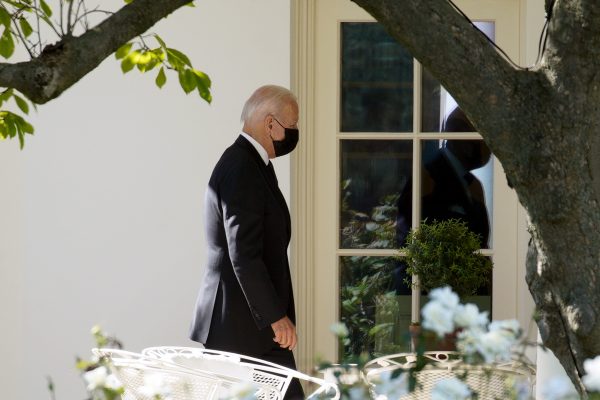Technical difficulties prevented US Secretary of State Antony Blinken from connecting virtually with ASEAN counterparts in May. Just two weeks after Blinken’s fumble, China’s State Councillor and Foreign Minister Wang Yi welcomed ASEAN foreign ministers at an in-person gathering where assurances over economic exchanges and COVID-19 pandemic-related assistance flowed freely. How US engagement with Southeast Asia might best progress amid Washington’s tense rivalry with Beijing remains be seen.
Despite a prolonged delay in the Biden administration’s engagement with Southeast Asia, the United States is now in full-court press mode. Several high-level visits to Southeast Asia have since taken place. Deputy Secretary of State Wendy Sherman visited Indonesia, Thailand and Cambodia in June. Most recently, Vice President Kamala Harris travelled to Singapore and Vietnam in August. Their combined message to the region emphasises the US commitment to help Southeast Asia overcome COVID-19. US engagement also seeks to reassure the region that the United States aims to strengthen its economic ties with Southeast Asia and to collaborate on climate change.
These visits also highlighted a United States that is prepared take all necessary steps to preserve the rules-based order in the Indo-Pacific. Washington does not seek armed confrontation with Beijing, but it will not hesitate to call out China on assertive and wrongful conduct in the South China Sea. At the same time, Washington neither expects nor intends to pressure Southeast Asian countries to choose sides in the US rivalry with China. Washington’s respect for ASEAN centrality remains unquestioned as evidenced by its support for the ‘five-point consensus’ agreed between ASEAN leaders and Myanmar coup leader Min Aung Hlaing.
But criticisms of the US approach have grown. The Biden administration’s perceived lack of a coherent Indo-Pacific strategy and Southeast Asia policy has created doubts over its long-term commitment to Asia in the light of its departure from Afghanistan.
The challenges that militate against Biden’s ability to lead and govern are quite extraordinary. On the home front, the difficulties working with a disjointed Congress, let alone uniting a deeply fragmented country, stand in the way of a robust and coherent foreign policy because of the need to balance domestic interests. As painfully regrettable as Washington’s botched withdrawal from Afghanistan has proved, Biden took a difficult yet necessary decision that his predecessors eschewed to avoid the political costs that come with it.
In the Indo-Pacific, Biden has signalled his intention to adopt a firm yet measured approach to China in contrast to the risky brinkmanship employed by former US president Donald Trump. But a firm yet measured approach is easier said than done, as underscored by the tense meeting between Wendy Sherman and her Chinese counterpart Xie Feng in Tianjin in July. Although level-headed Southeast Asian countries have repeatedly urged both superpowers to mutually exercise restraint and cooperate on shared interests, neither side — especially the Chinese — have shown a willingness to set aside their respective sacrosanct interests in order to live and let live.
Efforts by Washington to deeply engage Southeast Asia through support for the Comprehensive and Progressive Agreement for Trans-Pacific Partnership and the Regional Comprehensive Economic Partnership and Biden’s attendance at the year-end ASEAN-centred summits will be welcomed by the region. As US National Security Council Indo-Pacific coordinator Kurt Campbell put it: ‘For an effective Asia strategy, for an effective Indo-Pacific approach, you must do more in Southeast Asia’.
Given the difficult circumstances, the Biden administration’s flawed engagement with Southeast Asia may be about as good as it gets. The assurances given by the high-level US visitors to Southeast Asia will have to do for now. The good news for Biden is that according to a 2021 survey of Southeast Asian elites, the majority continue to welcome US strategic influence and are more likely to pick the United States if forced to choose between the United States and China. How long this goodwill towards the United States will last is anyone’s guess.
See Seng Tan is Research Advisor at the S Rajaratnam School of International Studies and Senior Associate at the Centre for Liberal Arts and Social Sciences, Nanyang Technological University (NTU), Singapore. He is also President/CEO of International Students, Inc, a US-based Christian non-profit.

